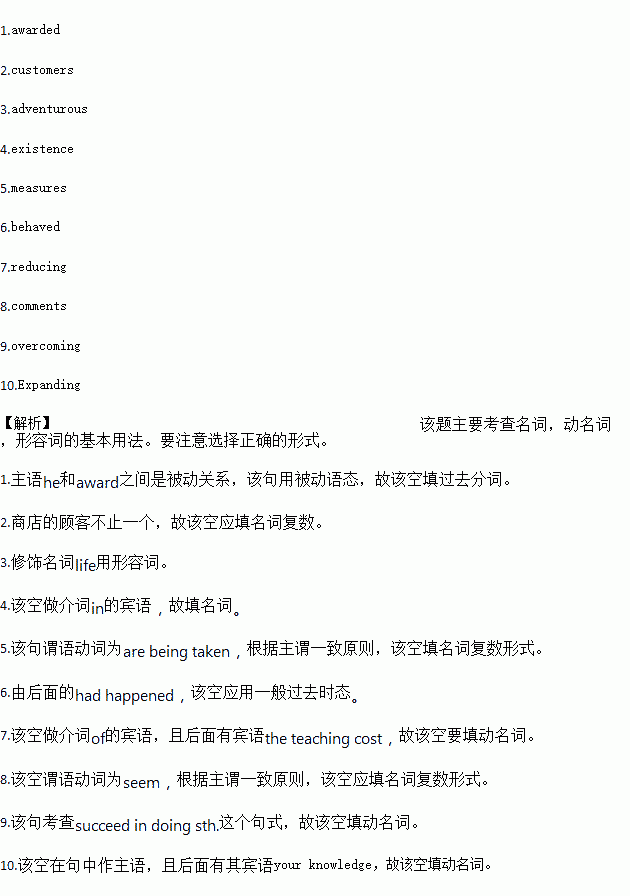题目内容
1.He was ____________(授予)the first prize in the competition
2.The shop tries its best to meet the needs of its ____________(顾客).
3.My husband loves ____________(冒险的)life while I enjoy a more peaceful life.
4.Some believe in the ____________(存在)of life on Mars, while others consider it as a myth.
5.Special ____________(措施)are being taken to protect the local water supplies
6.Much to my surprise, he____________(举止)as if nothing had happened.
7.The method of ____________(减少)the teaching cost has been discussed at the meeting.
8.Such ____________(评论)seem to suggest it had a big influence on the art world.
9.He succeed in ____________(克服)many difficulties in learning English.
10.____________(扩展)your knowledge by reading more books is a wise choice.


 about what construction to use, you begin to stammer, stop sounding natural. Your responses should become automatic to master the language, so instead of studying theory – take more practice! When you speak, you don't have time for considering what tense is appropriate, one hundred percent correct. 2. Grammar is important in writing, not in speaking.
about what construction to use, you begin to stammer, stop sounding natural. Your responses should become automatic to master the language, so instead of studying theory – take more practice! When you speak, you don't have time for considering what tense is appropriate, one hundred percent correct. 2. Grammar is important in writing, not in speaking.